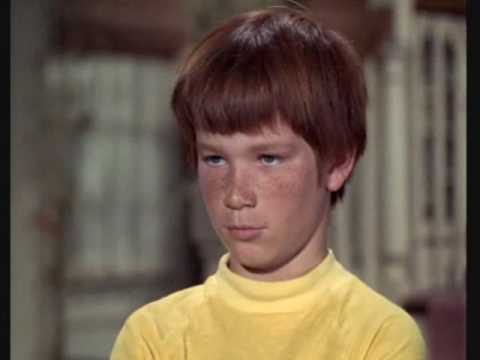This is probably closer to the sort of thing people think of, when they think about live-action Disney movies. Even though Mary Poppins won Oscars, and never mind the fine special effects of The Parent Trap, no, we’re talking about the vaguely domestic comedy of The Million Dollar Duck, starring Dean Jones and Sandy Duncan. It’s famously one of three movies in his career that Gene Siskel walked out on.
I’ll not be defending this movie as great art. For one thing, the portrayal of Katie Dooley, Duncan’s character, is just appalling. She’s not a woman you’d want in care of a child; you’d really expect her to have burned the house down long since. Her husband, Albert, of course played by Jones, is one of the most neglectful fathers in the Disney pantheon, so blinded by greed that he doesn’t even notice his son’s growing despair. There are various other things hidden in the film that we’ll probably get to. Goodness knows it’s a flawed film.
I mean, also, the plot is completely ridiculous. Albert works in behavioral science; they’re doing some experiment testing animals of a wide variety of species for various forms of intelligence. It doesn’t make a whole lot of sense, but we’re just beginning. Anyway, this stupid duck who fails all the tests eats some vile applesauce that Katie made, then gets irradiated. Somehow, this combines to make said duck start producing gold eggs, which they discover after the duck has been rejected from the lab and Albert brings it home to keep it from getting eaten by the janitor and his family. Many shenanigans follow, not least because possession of the gold violates the Gold Reserve Act and is therefore illegal. Since the Dooleys’ surly neighbour is Finley Hooper (Joe Flynn), a Treasury agent, this very quickly goes awry.
There’s a lot to unpack here. We’ll start with Katie; it’s not enough that she’s prone to malapropisms. She must also be a spendthrift and a lousy housekeeper. I have once seen the “turning pages in a cookbook” gag done well, and it was with someone clearly established not to have cooked much before. Yeah, so okay, Albert buys his lunches, but one assumes they routinely have dinner at home, if nothing else. I don’t know about anyone else, but I read recipes through before I cook them, if for no other reason than to make sure I have all the ingredients, and if something seems weird while I’m cooking, I check the page to make sure I’m doing everything right. Katie adds garlic and mustard to applesauce because there’s a fan turned on her cookbook.
On the other hand, she’s also the one who notices that Jimmy (Lee Montgomery) is miserable; Albert assuredly doesn’t. He’s in the right in my opinion to not want to buy a pedigreed puppy for fifty bucks—nearly $300 today—when they’re not even really keeping their heads above water, but after Jimmy bonds with the duck, he still insists on giving it away? And not for any decent reason, just because he needs to move the plot along. He gets so caught up in the gold that he completely ignores the son he’d previously referred to as a pal.
There’s also the persistent “government is bad for honest working folks” narrative which tends to bother me. Hooper is comfortably well off, but early in the movie, Albert says that they’re rich enough to buy a giraffe if he wants one. He also goes on about how the Treasury Department has all their money, but surely the way Katie writes checks with blithe unconcern about the amount of money in their actual account is a bigger problem?
Still, there are good points to the film for all that. I’m inordinately fond of the kid who is trying to sell the puppy, who watches Albert with a cold, steely eye while Albert attempts to explain their money problems to a ten-year-old. For some reason, he’s expecting a sympathetic ear from this kid, who doesn’t have one to give. The kid’s deadpan look of disdain is ridiculously funny to me.
It’s also got a pretty good cast—oh, Jones and Duncan, of course, and Flynn. But their lawyer/friend/neighbour Fred Hines is played by Tony Roberts in his first film role. Roberts also appeared in a wide array of Woody Allen films, not to mention Serpico and The Taking of Pelham One Two Three. The boss at the Treasury Department is veteran actor James Gregory. Arthur Hunnicutt gets a cameo as a farmer. And one of the two Wild Kids With a Dune Buggy down the road is Jack Bender, whose acting career is so-so but who has become quite a director for TV.
It is, essentially, a kids’ movie. Not a family movie, like most of Disney’s best output, but a kids’ movie. I watched it with Simon, and he didn’t care that apparently the phone lines at the Treasury Department are bugged by a host of foreign governments and that the Japanese bureaucrat shown discussing the duck is an awful racist caricature. He laughed because grown men were barking at a duck. (The duck’s got a Pavlovian response where it lays eggs when barked at.) He didn’t notice how weird it was that everyone was persisting in referring to a female duck as “he” all the time. He didn’t get into a lot of the other stuff in the film, but there’s a lot of plot here for a three-year-old. I suspect he’ll love it when he’s seven. And grow out of it again not long thereafter.


